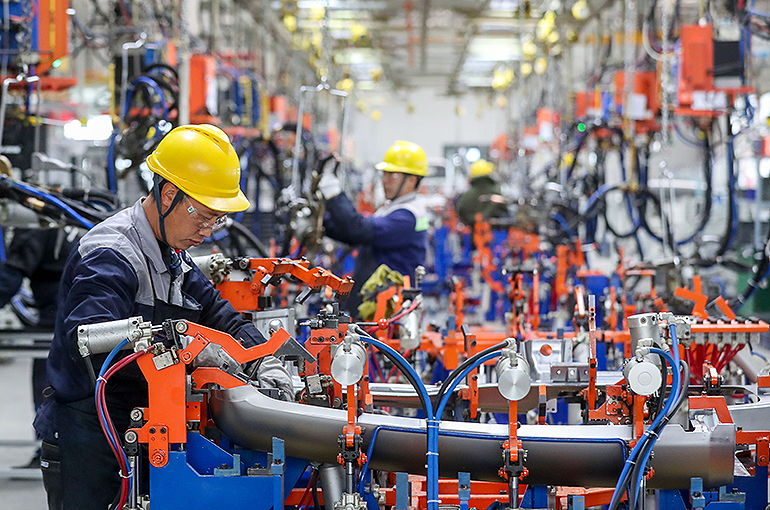 Chinese Plenum Puts Tech Self-Reliance, Domestic Demand Among Priorities for Next Five Years
Chinese Plenum Puts Tech Self-Reliance, Domestic Demand Among Priorities for Next Five Years(Yicai) Oct. 24 -- China has made “scientific and technological self-reliance” and “expanding domestic demand” some of the key priorities for its social and economic development agenda over the next five years.
China “should build a modernized industrial system and reinforce the foundations of the real economy” as well as “steer the development of new quality productive forces,” the communique from the Fourth Plenary Session of the 20th Central Committee of the Communist Party of China also said yesterday.
"We must work to stabilize employment, enterprise operations, markets, and expectations and keep the fundamentals of the economy stable, so as to consolidate and strengthen the momentum for economic recovery and growth," the communique said.
"We should ensure that our macro policies continue to play an effective role and intensify their implementation as necessary,” it said.
"We should fully implement assistance policies for enterprises, press ahead with special initiatives to boost consumption, guarantee the three priorities, including people's basic well-being, payment of salaries, and normal government functioning at the primary level, and defuse local government debt risks through active and prudent measures," the communique added.
Looking ahead to the 15th Five-Year Plan, which encompasses next year through 2030, the continuous implementation and timely strengthening of macroeconomic policies will be the main direction, Ming Ming, chief economist at Citic Securities, told Yicai.
The coordination between fiscal and monetary policies is expected to be further enhanced, with ongoing fiscal expansion and a loose monetary stance, Ming noted, adding that this will not only ensure the growth of the economy but also support optimization of the economic structure.
China should seize the opportunities presented by the technological revolution and industrial transformation to boost its strengths in education, science, and technology, and human resources, while continuing to foster new quality productive forces, according to the communique.
Technological development, consumption improvement, and enhancing people's livelihood all rely on fiscal support and a low interest rate environment, Ming said. Macroeconomic policies will continue to drive the economic recovery, optimize the industrial structure, boost domestic demand, promote capital market stability, and support rising household incomes, he added.
In terms of monetary and fiscal policy, the focus over the next five years will be on vigorously developing tech finance, including increasing bank loans to tech firms, expanding the issuance of innovation bonds, encouraging tech-driven companies to go for equity financing, and attracting venture capital, said Wang Qing, chief economic analyst at Golden Credit Rating International.
Regulatory authorities will guide more funds into tech innovation and industrial transformation by establishing and optimizing structural monetary policy tools and adjusting assessment indicators for financial institutions, thus promoting healthy capital market development, Wang noted.
Monetary policy will likely stay moderately accommodative in the near future, with a greater focus on exploiting the price-based regulatory role of policy interest rates, Wang added. This includes improving the interest rate transmission mechanism, reducing financing costs for enterprises and families, and stimulating the financing demand of market participants.
Wang believes that economic policy will also pay more attention to cross-cycle design in the future. This means that during the 15th Five-Year Plan period, fiscal and monetary policies will not fluctuate significantly to avoid issues, such as high inflation, excessive government debt burden, and financial risks.
Overall, the country’s fiscal, tax, and financial policies during the period will maintain a strong degree of stability and continuity, Wang pointed out.
The need for a new round of policies this quarter to stabilize growth has increased, according to Wang. The core of these measures will be strengthening fiscal support and maintaining an accommodative monetary policy to more effectively promote the stabilization and recovery of the real estate market.
Editor: Futura Costaglione